By SOFIA BARBARANI
ERBIL, Kurdistan Region – Living in foul conditions that include the overpowering stench of feces, an injured lioness is just one of the residents at Iraqi Kurdistan’s privately-owned Gilkand Zoo, named by US-based Global Post newspaper as one of the world’s worst zoos.
The zoo in the city of Erbil, capital of the autonomous Kurdistan Region, contains about a dozen concrete hovels with caged doors, each housing animals that include wolves, baboons, a bear and birds that oddly include several pigeons. At the rear, an aged-looking camel grazes amongst the garbage.
“The animals live in a tragic state,” said Dr Hemin Muhammad Ahmed, a local vet who -- in the absence of a full-time specialist -- tends to the animals whenever he is called, usually only when there are injuries or illness.
“It is an unhealthy environment,” he explained. “Any animal that lives in such an environment is bound to lose its mind.”
Tucked behind a busy road and hidden at the back of what used to be the city’s most exclusive hotel, the poor living conditions have been highlighted by local environment groups.
“This sad place is not the beastly equivalent of Dante’s third hell, but a zoo,” the Global Post online newspaper said in a 2010 report, illustrating conditions with the reference to 13th century Italian writer Dante Aligheri.
Ahmed, the vet, explained that not only were the animals ill-kept, the division of the cages was not right; they should be grouped according to their eating habits. Ahmed explained that most animals had lost their natural habits, suggesting a form of depression; a stark example of this was wolves eating grass, which they would not do in the wild.
One of the caged wolves lay huddled in a corner, whilst the other tirelessly paced the tiny dwelling. Opposite the wolves, the lioness nursed a raw wound at the end of its tail.
“The lion was injured when she was being moved here,” said zoo owner Khalil Sabir Kawani, explaining that all the African animals were imported from Syria.
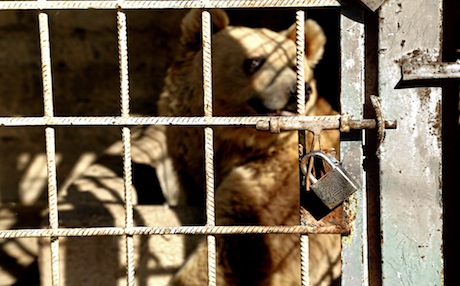
Beside their living conditions at zoos, the smuggling of animals is another point of contention that has yet to be dealt with by authorities. Owning exotic animals has become an increasing trend among Iraq’s wealthier citizens, and Gilkand Zoo has previously worked as a selling point for these illegal transactions.
Although Kawani denied that there were any problems with the maintenance and hygiene of the cages, his comments belied the sad living conditions at the zoo.
The animals sat in silence, gazing at the few visitors who sometimes roamed in, past the battered-looking replica of a lion’s open muzzle that adorns the entrance.
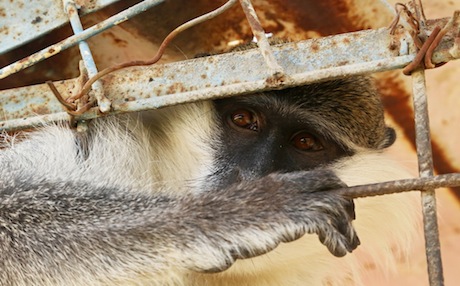
Besides the buzzing of hordes of flies, the only other sound was the growling of the wolves, as a young boy kicked the bars of their cage.
Later, he repeated the gesture with a tiny monkey; the animal appeared less than impressed with the boy’s antics.
Kawani admitted that there have been instances of abusive behavior by visitors, such as throwing stones at the animals. He said these are immediately dealt with by zoo employees.
Three of the cages contained birds: pigeons, birds of prey and an owl. A bird of prey repeatedly expanded its wings and tilted its head toward the ceiling, in what appeared to be an attempted take- off. Another held its wing at a strange angle, suggesting a fracture of sorts. In a different cage, a beautiful lone owl sat motionless, seemingly dazed or depressed.
The only animals that seemed content were the tiny goats roaming around the land. In fact, the zoo was originally built for smaller farm animals, explained Kawani, and the caged animals do not have areas where they can wonder freely.
The owner has been renting the tiny patch of land for 17 years, seemingly unaware of the tragic state in which his animals are living. If it were up to him, he said, he would have moved a long time ago, explaining that the zoo is due to relocate to a larger place in the next three months.
A member of Kurdistan Organization of Animal Rights Protection explained that the zoo owner had mentioned relocating a few months ago, and that only time will tell if he is serious. Other sources claimed that he has not been willing to relocate due to the zoo’s central location: Moving to the outskirts of Erbil may result in a fall in paying visitors.

Nature Iraq, one of the groups dealing with Kurdistan’s zoos, recently put out a document on ways to improve the treatment of zoo animals. Although the document has been delivered to the zoo, Kawani denied receiving help from organizations or the government.
“You can only receive help from the government if you know someone,” he said, blaming the corruption and nepotism that everyone complains about throughout Iraq.
Photos by: Seivan Salim/Rudaw



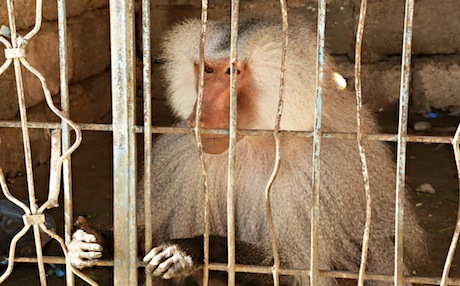
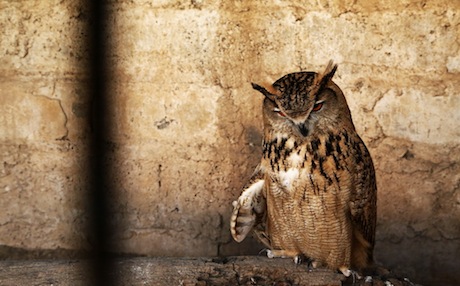
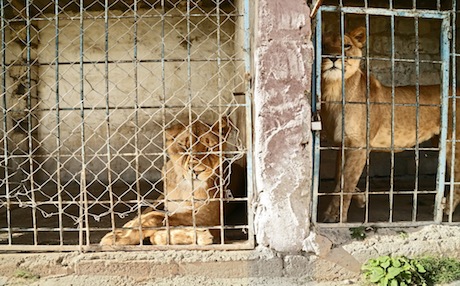
Comments
Rudaw moderates all comments submitted on our website. We welcome comments which are relevant to the article and encourage further discussion about the issues that matter to you. We also welcome constructive criticism about Rudaw.
To be approved for publication, however, your comments must meet our community guidelines.
We will not tolerate the following: profanity, threats, personal attacks, vulgarity, abuse (such as sexism, racism, homophobia or xenophobia), or commercial or personal promotion.
Comments that do not meet our guidelines will be rejected. Comments are not edited – they are either approved or rejected.
Post a comment